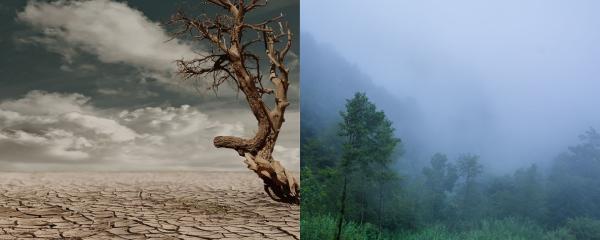
IIT Palakkad study shows how different indices used to predict drought combined with effects fof climate change can lead to different climate predictions for the future

IIT Palakkad study shows how different indices used to predict drought combined with effects fof climate change can lead to different climate predictions for the future
In a first, a study by researchers at the Mahatma Gandhi University, Kottayam, Kerala, has reported that microplastics have been found in the sediments of the Vembanad Lake, a wetland ecosystem recognised internationally by the Ramsar Convention.
Researchers from IISER Kolkata, have discovered that stray dogs understand our intentions and respond to them accordingly.
The year 2018 was exciting for herpetologists in India as over 20 new species of frogs and geckos were discovered here. As we ring in 2019, the excitement continues to live on as researchers from Pune’s Savitribai Phule Pune University and the Zoological Survey of India, Kolkata, have discovered a new species of cricket frog from the northern Western Ghats in Maharashtra.
Researchers at the University of Aizu, Japan, and Indian Institute of Tropical Meteorology, Pune, have proposed some improvements to existing monsoon-predicting models that could help precise prediction of the monsoon rains. An accurate monsoon forecast can help farmers plan agricultural activities and have early warning systems in place to prevent the loss of life and property by floods.
Have you ever chanced upon a tiny spider in your garden, or perhaps on the wall of an old building, that swiftly jumped away as soon as you noticed it? Chances are that you spotted a spider of the Salticidae family. Jumping spiders, as they are commonly termed, are known for their leaping abilities, active hunting behaviour and impressive vision. It is hard to imagine that these wee arachnids have evolved a complex system of signalling using colours.
Researchers from IISc, Bengaluru, and the Kerala Forest Department, have reported the presence of the human malaria parasite, Plasmodium falciparum, in two species of Indian monkeys.
The variability of monsoon rains due to climate change affects Marathwada and Vidarbha regions the most, says a district level study.
IIT Bombay study proposal to account for ecological sensitivity to help developmental and planning authorities.
Researchers at the NCBS, Bengaluru, studied how Swallowtails evolves and changes its appearance and colour at various stages of its elaborate life cycle to develop their colour defence strategies.
The new year is here and we are still revelling in the spirits of 2018! One of our significant initiatives of 2018 was communicating science in regional languages so that the compelling science stories reach far and wide, breaking language barriers. After our debut with Kannada, we scored big with Hindi, Marathi and Assamese. The year 2019 holds more promise and we are all excited about it! Here we present a selected list of stories that were our top ‘local flavours’.